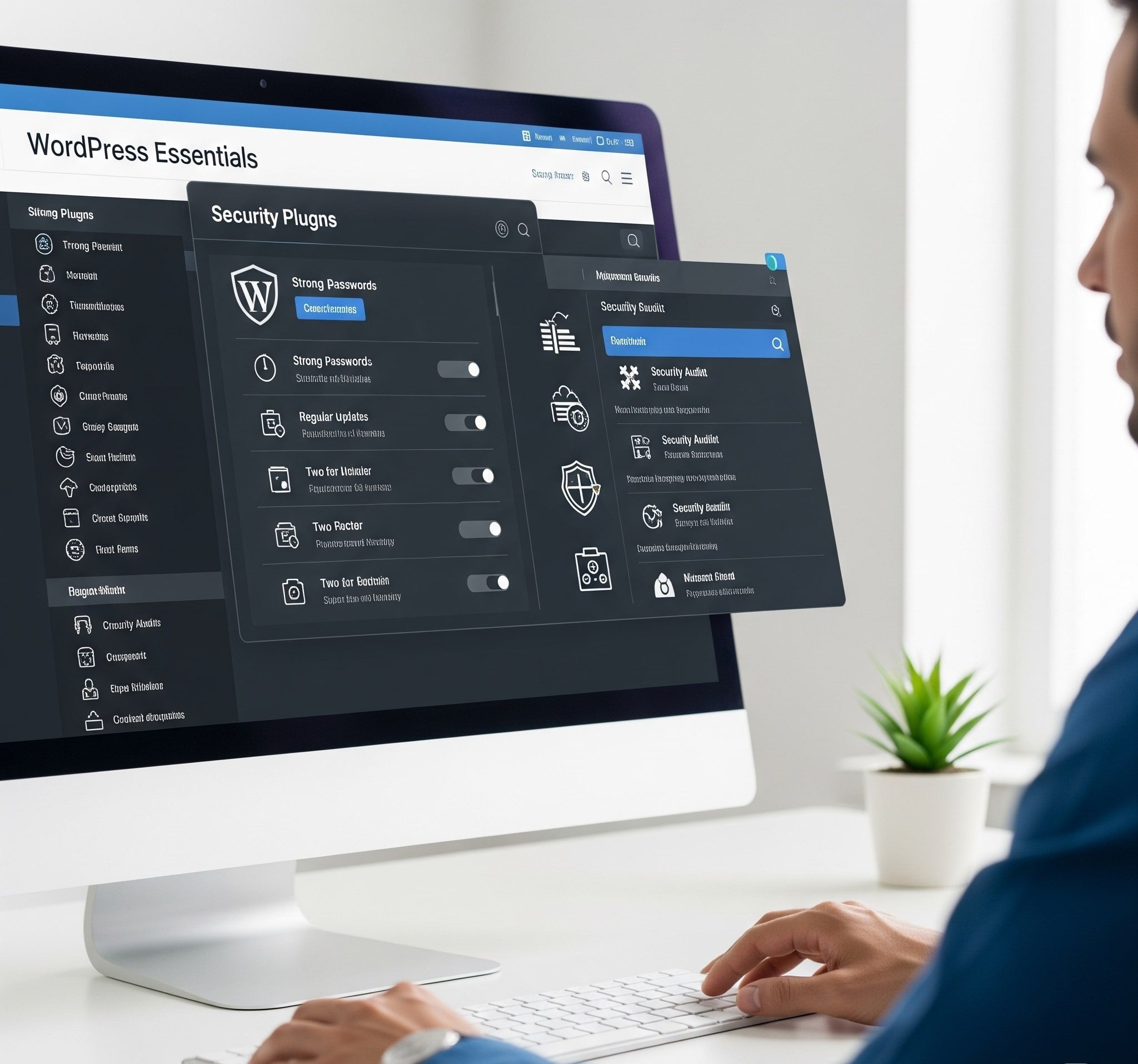
Secure Your WordPress Website: Look for the most common vulnerabilities:
Outdated Software, Plugins, and Themes:
Failing to update WordPress Security core, plugins, and themes can leave your site vulnerable to known WordPress Security issues[2][5]. Regular updates are crucial to patch vulnerabilities and protect your site from potential threats.
Brute Force Attacks:
Brute force attacks involve hackers trying multiple username-password combinations to gain unauthorized access to your site[2][5]. Implementing strong password policies, limiting login attempts, and using security plugins can help prevent these attacks.
Cross-Site Scripting (XSS) Attacks:
XSS vulnerabilities are prevalent in security plugins and themes, allowing attackers to inject malicious scripts into websites[2][5]. This exposes visitors to the site and sensitive information, making it essential to secure against XSS attacks.
SQL Injections:
SQL injections occur when attackers manipulate a website’s database through vulnerable code, potentially leading to data breaches or unauthorized access[2][5]. Preventing SQL injections involves secure coding practices and input validation.
File Inclusion Exploits:
Attackers exploit vulnerable PHP code to load remote files, gaining access to critical files like wp-config.php. This severe vulnerability can expose your database credentials and subsequently grant them full control over your website. Therefore, to prevent such breaches, it is paramount to ensure that no user-supplied input can dictate file paths in include() or require() statements.
Denial-of-Service (DoS) Attacks:
DoS attacks, by their nature, flood servers with an overwhelming volume of requests, thereby leading to service disruptions for legitimate users. Implementing measures like rate limiting and using security plugins can significantly help mitigate the impact of such attacks.
By addressing these common vulnerabilities through proactive security measures such as regular updates, strong password policies, secure coding practices, and the use of security plugins, you can significantly enhance the security of your WordPress website and protect it from potential threats.
Citations:
[1] https://beaglesecurity.com/blog/article/wordpress-security.html
[2] https://www.sitelock.com/blog/how-to-fix-wordpress-vulnerabilities/
[3] https://jetpack.com/blog/wordpress-security-issues-and-vulnerabilities/
[4] https://www.cvedetails.com/vulnerability-list/vendor_id-2337/product_id-4096/Wordpress-Wordpress.html
[5] https://www.wpzoom.com/blog/wordpress-security-issues/

Leave a Reply